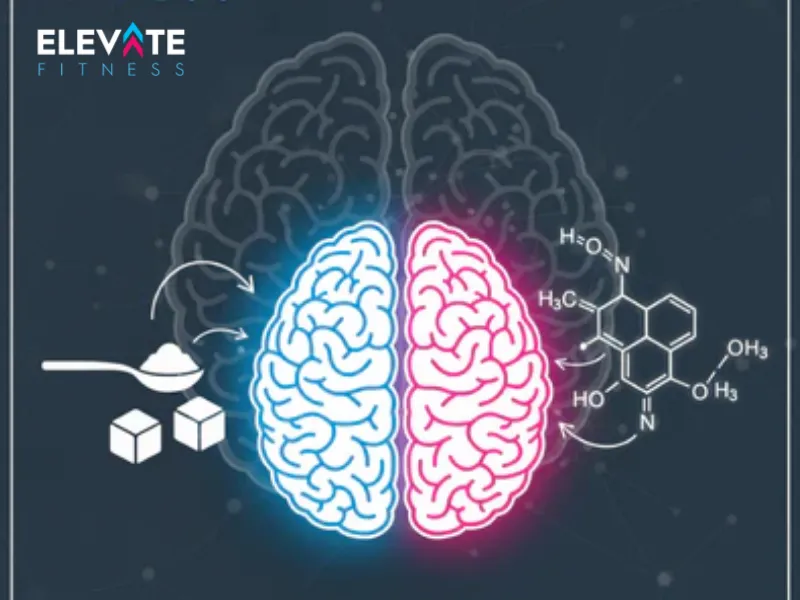
Certified Fitness Trainer Explains | Is Sugar Really as Addictive as Cocaine? A Look at the Science Behind the Claim
The idea that sugar is “as addictive as cocaine” grabs headlines instantly. It’s dramatic and a little thrilling — your morning cereal compared to a narcotic? But while the claim gets clicks, the question deserves a closer look. Is sugar truly addictive in the same way as drugs, or is the comparison more hype than science?
Let’s break it down.
What Animal Studies Actually Show
In rodent studies, sugar sometimes behaves like an unruly guest at the addiction party. When rats get intermittent access to sugar (restricted, not steady), they display behaviors that resemble addiction markers: bingeing, withdrawal, tolerance, and compulsive seeking. In some setups, the rats repeatedly pressed levers for sugar, showed withdrawal-like signs when sugar was removed, and experienced shifts in dopamine and opioid receptor activity.
Sounds intense — but here’s the catch.
These behaviors appear mainly under extreme and artificial conditions. When sugar is freely available, those “addiction-like” behaviors largely disappear. And of course, rats are not humans living in Dallas, Texas with jobs, stress, cravings, memories, social eating, and access to Chick-fil-A.
What Happens in the Human Brain
Humans are much more complicated than lab animals. Yes, sugar and other sweet tastes activate the brain’s reward system, including dopamine pathways. But the effects are nowhere near what we see with substances like cocaine.
A recent comparison found that cocaine triggers far greater dopamine spikes than sugar ever could.
Some people do show patterns of “addictive-like eating” — strong cravings, loss of control, emotional eating — and tools like the Yale Food Addiction Scale capture this. But major medical and neuroscience organizations agree: sugar does not meet the formal criteria for drug addiction (rapid physiological dependence, severe withdrawal, escalating tolerance, and drug-seeking behavior).
Why the Sugar vs. Cocaine Myth Won’t Die
The claim sticks around because there’s some truth buried inside it:
• Sugar activates reward pathways.
• Modern foods mix sugar, fat, and salt into highly engineered, hyper-palatable combinations.
• Stress, habits, emotions, and environment amplify our cravings.
In other words, it’s not just the sugar — it’s the context.
So… Is Sugar Addictive Like Cocaine?
Short answer: no.
Long answer: it’s nuanced.
Yes — sugar triggers pleasure pathways and can lead to craving-like behavior in some people.
No — sugar doesn’t create the same physical dependence, withdrawal, or drug-seeking patterns as cocaine.
Yes — certain individuals are more vulnerable to overeating.
No — saying “sugar is a narcotic” oversimplifies the evidence and misleads people.
The Real Problem Isn’t Sugar — It’s the Food Environment
Pure sugar on a spoon? Not the real villain.
But ultra-processed foods, marketing, supersized portions, emotional eating, and convenience?
That’s where things get messy.
Sugar inside a highly engineered product hits your brain differently than sugar sprinkled on oats. The combination of sweetness + fat + salt + texture + additives is what keeps you coming back for more — not sugar by itself.
The Real Takeaway
The next time someone says, “Sugar is more addictive than cocaine,” you can confidently respond:
“Only if you’re a rat living in a lab under extreme conditions.”
Sugar is powerful, but it’s not a narcotic. The smartest approach is to focus on:
• overall eating patterns
• portion sizes
• food environment
• stress and emotional triggers
• consistent movement and strength training
That’s where long-term health actually changes.
How Elevate Fitness Helps You Break the Cycle
At Elevate Fitness in Dallas, Texas, we teach clients how to build sustainable habits — not follow extreme rules. Every client works with a Certified Personal Trainer who understands physiology, nutrition behavior, and real-world consistency.
If you’re looking for the best personal trainers in Dallas who can help you improve nutrition habits, reduce cravings, boost mobility, and build real strength:
👉 Book your FREE No Sweat Intro Session today
or call us at (214) 302-9788 to get started.
